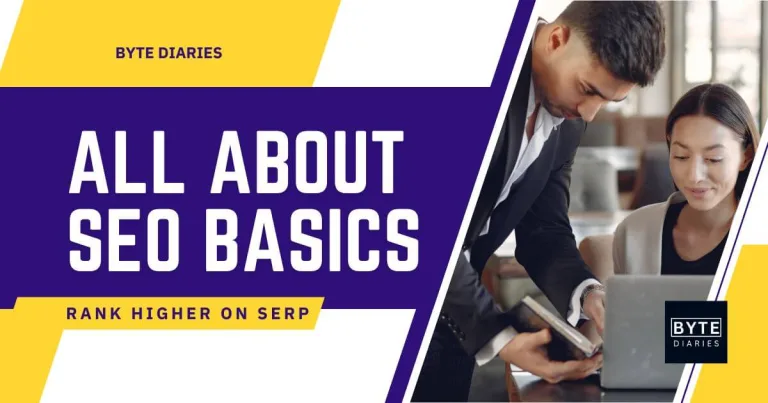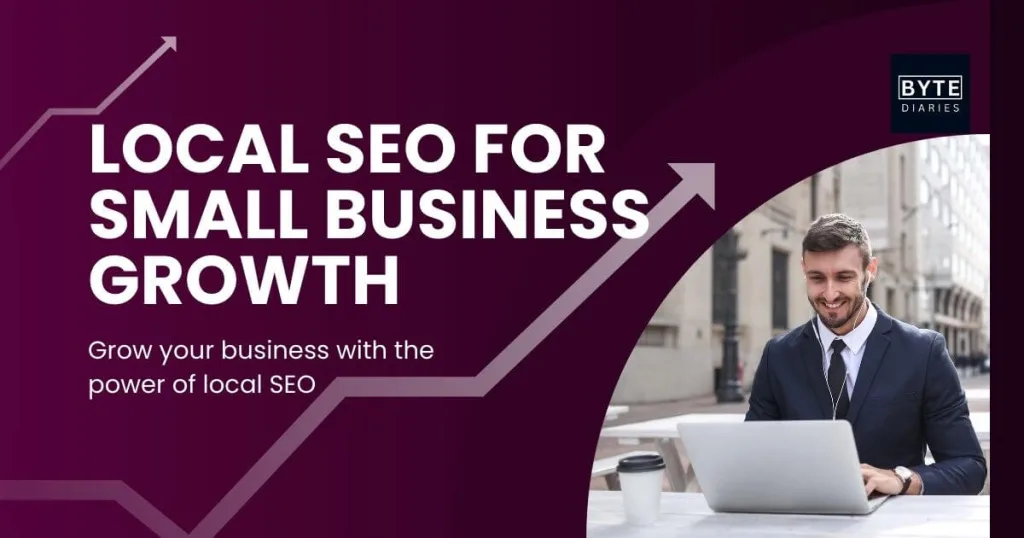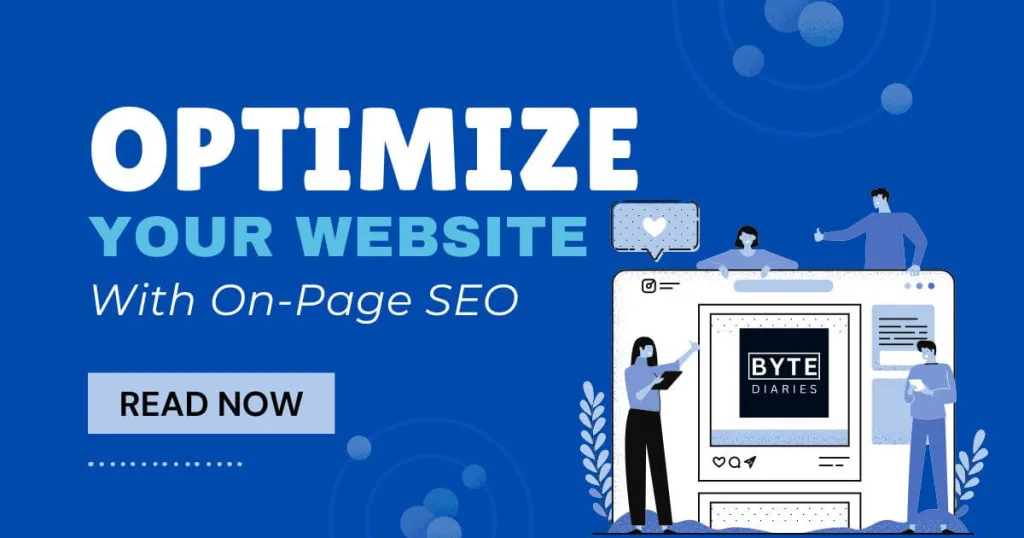If you’ve ever wondered how websites appear in Google search results, you’re about to learn the secret: Search Engine Optimization (SEO). SEO is making your website more visible to search engines like Google, Bing, and Yahoo, which helps people find your content when they search for relevant topics.
In this beginner’s guide, we’ll cover the SEO basics and how you can use SEO to boost your website’s visibility, traffic, and ranking.
Table of Content
- What is SEO?
- Why is SEO Important?
- How Does SEO Work?
- Key SEO Strategies for Beginners
- Keyword Research: The First Step to SEO Success
- On-Page SEO: Optimize Your Content
- Quality Content: The Heart of SEO
- Backlinks: The Power of Links
- Technical SEO: Ensure Your Site is Search Engine-Friendly
- Local SEO: Get Found in Your Area
- Frequently Asked Questions (FAQs)
What is SEO?
SEO stands for Search Engine Optimization. Simply put, it’s the art and science of optimizing your website to rank higher on search engines. The higher your website ranks, the more likely people will find it when they search for topics related to your business.
SEO is important because it helps increase traffic to your site. The more visitors you have, the more chances you have of turning them into customers, subscribers, or followers.
Why is SEO Important?
Without SEO, your website may be buried on the 10th page of Google, where few people will see it. Trust me, people hardly visit the second page of Google SERP (Search Engine Result Page).
Talking about the second page of Google search results, here comes a meme:
“The second page of Google search results is the best place to hide a dead body 🤣”
But when you optimize your site properly, you can improve its chances of showing up on the first page — which is where over 90% of searchers click.
Imagine you run a bakery. If your website ranks high for terms like “best bakery in New York” or “fresh bread near me,” you’ll attract more customers and grow your business. SEO helps you target people who are already interested in what you offer.
How Does SEO Work?
Search engines like Google use algorithms to determine which websites to show in their search results. These algorithms look at a variety of factors to evaluate your website’s quality, relevance, and authority.
Here are some key factors that affect SEO:
- Keywords: Words and phrases people type into search engines.
- Content: High-quality, informative content that answers users’ questions.
- User Experience: Easy navigation, fast loading times, and a mobile-friendly design.
- Backlinks: Links from other trusted websites pointing to your site.
- Technical SEO: Making sure your site is easy for search engines to crawl and understand.
Key SEO Strategies for Beginners
Keyword Research: The First Step to SEO Success
Keyword research is the process of finding the words and phrases people are searching for that are relevant to your business. Once you know which keywords to target, you can use them throughout your website to improve your chances of ranking.
You can use free tools like Google Keyword Planner to help you find keywords related to your business.
Example: If you run a flower shop in New York, you might want to target keywords like “flower delivery in NYC” or “buy flowers online in New York.”
Related Keyword Tip:
When you do keyword research, look for related keywords or long-tail keywords (phrases that are longer and more specific). These are often easier to rank for and can attract more targeted visitors.
For a more in-depth look at keyword research, check out our article on Keyword Research for Beginners.
On-Page SEO: Optimize Your Content
On-page SEO refers to the things you can do on your website to improve its ranking. This includes using the right keywords, creating high-quality content, and making sure your pages are easy for both users and search engines to navigate.
How to Optimize Your Pages:
- Title Tags: Include your main keyword in the title of the page. 50-60 characters are perfect for titles.
- Meta Descriptions: Write a compelling description of your page, using relevant keywords. The meta description should be around 150-160 characters.
Why?
– To be perfectly visible on the Google search result page. Because if it is not visible, what’s the point of writing it? Google generally shows 155-160 characters for meta description and around 60 characters for the title.
- Headings: Use headings (H1, H2, H3) to organize your content and include keywords in them if possible.
- URL Structure: Keep URLs short and include keywords if possible (e.g., yourwebsite.com/flower-delivery-nyc).
- Images: Use descriptive file names and alt text for your images.
Example: If you are writing a blog post about “flower arrangements for weddings,” make sure that the title of the blog post, the headings, the image alt tag, and the content use this keyword appropriately.
Watch our article on On-Page SEO and learn how to rank a website
Quality Content: The Heart of SEO
Creating high-quality content is essential for ranking well in search engines. Google rewards websites that provide valuable, informative, and user-friendly content.
Your content should be:
- Informative: Answer questions your audience is asking.
- Relevant: Stay on topic and use keywords that match user intent.
- Engaging: Make your content easy to read and enjoyable.
- Up-to-date: Keep your content fresh and current.
Remember, the goal is to satisfy both users and search engines.
Backlinks: The Power of Links
Backlinks are links from other websites that point to your content. These links act as “votes of confidence” from other sites, telling search engines that your content is trustworthy and authoritative.
To build backlinks:
- Create High-Quality Content: People are more likely to link to your content if it provides value.
- Guest Blogging: Write guest posts for other blogs and include a link back to your website.
- Reach Out: Contact other websites and ask them to link to your content.
- Create Infographics: Sometimes, people can use your infographics on their website and give you credit by linking back to your website.
For more on building backlinks, check out this guide on How to Build Backlinks.
Technical SEO: Ensure Your Site is Search Engine-Friendly
Technical SEO involves optimizing the technical aspects of your website so that search engines can crawl and index your pages easily.
Important aspects of technical SEO include:
- Mobile-Friendliness: Make sure your site works well on smartphones and tablets.
- Page Speed: Optimize your website’s speed to improve user experience and rankings.
- XML Sitemap: Submit your sitemap to Google to help them crawl your pages.
- SSL Certificate: Make sure your website is secure by using HTTPS.
Learn more about technical SEO in this Comprehensive Guide on Technical SEO.
Local SEO: Get Found in Your Area
If you run a local business, local SEO helps your business show up in search results when people search for things in your area. To get started with local SEO:
- Claim and optimize your Google My Business profile.
- Include your location and service area in your website’s content.
- Get listed in local directories and encourage happy customers to leave reviews.
Learn how to optimize your local SEO with our Local SEO for Small Business.
Frequently Asked Questions (FAQs)
1. What is SEO and why is it important?
SEO stands for Search Engine Optimization. It helps improve your website’s visibility in search engine results. SEO is important because it helps attract more visitors to your site, which can lead to more customers or followers.
2. How do I choose the right keywords for my website?
Think about what your audience might search for when looking for products or services like yours. Use tools like Google Keyword Planner to find relevant keywords. Focus on keywords that are easy to rank for but still popular.
3. Can I do SEO on my own?
Yes, you can! Start by learning the basics, like keyword research, creating good content, and improving your site’s performance. With time and practice, you can do SEO yourself.
4. How long does it take to see results from SEO?
SEO is a long-term strategy. It usually takes a few months to start seeing significant results. However, the more consistent you are with your efforts, the more benefits you’ll see over time.
5. Do I need to hire an SEO expert?
It depends on your website’s needs. If you’re just starting out, you can learn and apply SEO on your own. Hiring an expert can be helpful if you need advanced strategies or have a larger site.
6. What are backlinks and why are they important?
Backlinks are links from other websites that lead to your content. They help build your website’s credibility and can improve your search engine rankings.


